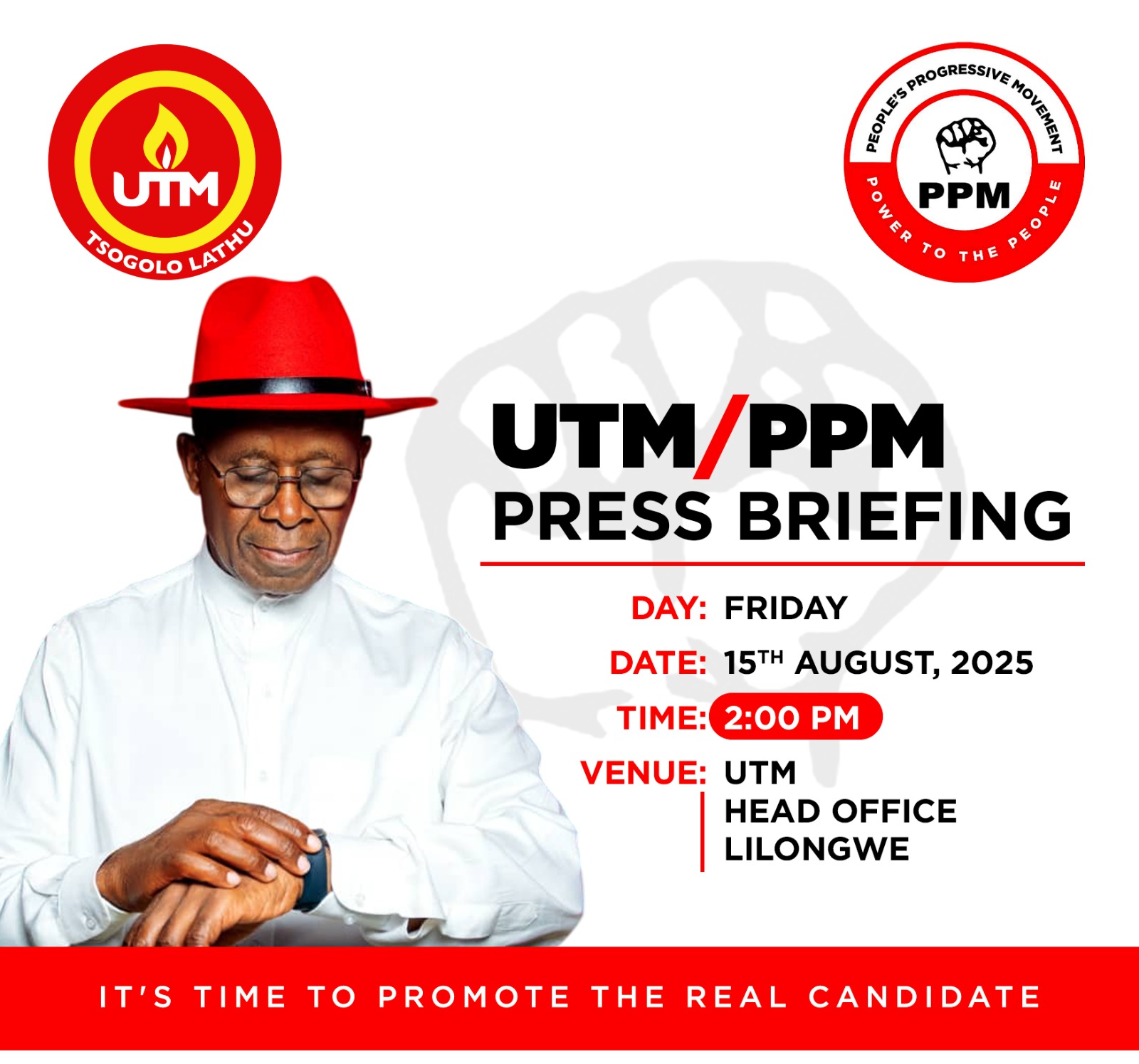By Malawi Freedom Network reporter
The United Transformation Movement (UTM) has found an alliance partner in the People’s Progressive Movement (PPM).
This development comes as part of UTM’s broader strategy to build partnerships ahead of the forthcoming elections.
While the PPM’s national electoral influence is modest, with an estimated support base of around 0.1%, the move is being viewed as symbolic in consolidating opposition unity.
UTM, on the other hand, commands an estimated 5% of the electorate, according to recent projections.
The combination of the two parties mathematically suggests a modest increase in total electoral strength, but politically, it sends a strong message about coalition-building.
Party insiders have indicated that the alliance is not purely about numbers, but about shared values, political vision, and mutual support in key constituencies.
PPM leader Mark Katsonga Phiri has long been regarded as a steady political figure, despite his party’s limited parliamentary representation.
UTM’s leadership believes that forming such alliances will create a wider network of political influence and enhance its bargaining power in Malawi’s competitive political arena.
Political observers note that while the combined support base may still fall short of being a decisive electoral force, the alliance could play a kingmaker role in a tightly contested election.
The official signing of the alliance agreement is expected to be accompanied by a joint campaign strategy, which will outline how both parties plan to complement each other on the ground.
Concluding Analysis
The alliance between UTM and PPM reflects a broader trend in Malawian politics where smaller parties seek relevance through strategic partnerships.
While the immediate numerical impact of combining 5% and 0.1% may seem negligible, the political value lies in the optics of unity and the potential to sway marginal constituencies.
If effectively managed, the partnership could help both parties punch above their electoral weight and secure strategic wins in parliamentary or council seats.
However, the ultimate success of this alliance will depend on how well the two parties integrate their structures, coordinate their messaging, and deliver a coherent campaign to the Malawian electorate.



